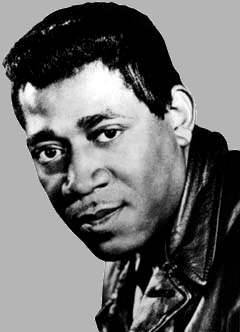In 1966, James Carr recorded the soul ballad “The Dark End of the Street,” a song that became a Top 10 rhythm-and-blues hit. Rather than having one of the more prolific careers in soul music history, James Carr’s impact was short-lived but still significant.
Born in Clarksdale, Mississippi to a minister and his wife on June 13, 1942, Carr began his career singing gospel tunes as young as nine years old. As a teenager, he worked as a day laborer and continued to sing with various gospel groups. He married early and fathered five children. In the early 1960s Carr started singing soul music. Turned down by the well-known Stax Records, Carr set out to record with Goldwax Records, owned by Quinton Claunch.
James Carr will never be as well-known as Otis Redding, Sam and Dave, or Percy Sledge, yet his legacy will remain firm as one of the greatest balladeers of all time. His first single, “The Word Is Out,” was recorded in 1964, and in 1966 “Got My Mind Messed Up” and “The Dark End of the Street” both became Top 10 rhythm-and-blues hits, the most successful of his career.
Although more famous musicians—such as Aretha Franklin, Gram Parsons, and Percy Sledge—went on to record “The Dark End of the Street,” Carr’s rendition, written by Chips Moman and Dan Penn, remains the seminal version. In fact, “The Dark End of the Street” has been considered by some musical critics to be the greatest soul recording in history. What made Carr unique was not his stage presence or persona, rather it was his instrument, his powerful, deep voice which earned him the unofficial title, “World’s Greatest Soul Singer.”
Continuing to record for Goldwax through the 1960s, putting out songs like “Pouring Water on a Drowning Man,” “I’m a Fool for You,” “Forgetting You,” and “A Man Needs a Woman,” Carr established his talent through soulful expression.
However, difficulties in the recording studio—refusing to speak for hours or even abandoning sessions—made recording impossible at times. Long hours of wasted session time held back any hopes of a lucrative career for James Carr.
Not until Massachusetts author Peter Guralnick released his 1986 book Sweet Soul Music did Carr finally find some of the recognition his peers had always enjoyed. Guralnick’s depiction of a “magisterial singer” confounded by mental illness and a difficult personality illuminated this once-forgotten career and talent.
Thanks to Guralnick’s book, Carr returned to the music scene in 1992. He recorded singles and albums once again for the resuscitated Goldwax Records in 1991 for Take Me to the Limit before wrapping up his career with 1994’s Soul Survivor.
The remaining years of his life were spent with his sister Rose with occasional attempts to tour or record. James Carr died of cancer in a Memphis, Tennessee nursing home on January 7, 2001. He was 58 years old at the time of his death and survived by three sisters, a brother, and five children.

